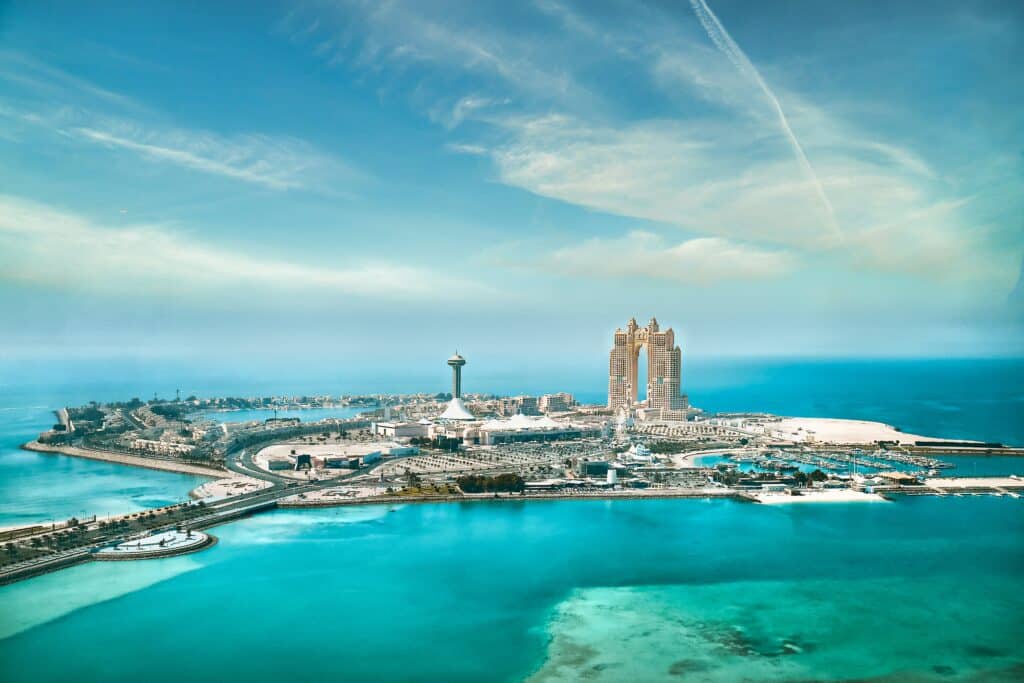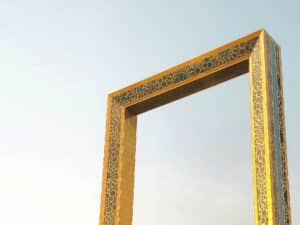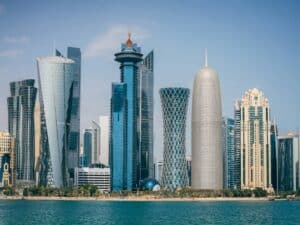Living and working in Abu Dhabi: a guide for expatriates in 2025

Abu Dhabi offers a compelling lifestyle for professionals seeking a new life and an international experience in the United Arab Emirates (UAE). Known for its tax-free income, modern infrastructure and strong expat community, the city combines career opportunities with a high standard of living and many perks.
Whether you’re relocating for work, considering a long-term move or simply exploring expat life in the Middle East, Abu Dhabi provides a quieter, more relaxed alternative to Dubai, while still offering access to world-class amenities, cultural landmarks and a thriving job market.
Residency and work visas
The UAE has introduced several new visa pathways to support international talent:
- Residency visa: most professionals enter on a standard work visa, sponsored by their employer. This includes a residency visa, Emirates ID, and health insurance.
- Golden Visa: long-term residency for professionals in healthcare, education, tech and media. No employer sponsorship required.
- Green Visa: a five-year option for freelancers, entrepreneurs and skilled workers. Allows sponsorship of dependents.
- Job Exploration Visa: enables professionals and graduates to enter the UAE without a job offer and search for employment.
Employers are now required to cover the cost of visa processing, Emirates ID registration and health insurance. These changes make relocation more accessible and reduce the upfront financial burden for new arrivals.
Cost of living in Abu Dhabi
The cost of living in Abu Dhabi is generally lower than in Dubai, though it depends on your lifestyle and housing preferences. According to recent data:
- Rent: AED 6,000–8,000 per month for a one-bedroom apartment in central areas like Al Raha, Khalifa City or near the Corniche
- Utilities: AED 1,200–1,500 per month, with air conditioning costs rising during summer
- Groceries: AED 600–1,200 per month for singles; AED 2,000–4,000 for families
- Dining out: AED 280 for two at a mid-range restaurant
- School fees: AED 15,000–100,000 per year at international schools
While Abu Dhabi offers tax-free salaries, newcomers should budget for upfront costs such as housing deposits, visa processing and school enrolment. The city’s high standard of living and access to high-quality amenities make it a worthwhile investment for many expatriates.
Healthcare and health insurance
Abu Dhabi’s healthcare system is modern and well-regulated. Most expats rely on private providers, with health insurance typically included in employment packages. Public hospitals are available to residents with an Emirates ID, but private clinics offer faster access and more personalised care.
Emergency services are reliable, and many facilities are English-speaking. Premium insurance plans can exceed AED 10,000 per year, so it’s important to review your coverage before relocating.
Education and international schools
Abu Dhabi offers a wide range of international schools, catering to the city’s diverse expat community. British, American, IB and other curricula are widely available, with many schools offering high standards of education and modern facilities. Popular choices include schools located in Khalifa City, Al Raha and Saadiyat Island, which are also well-suited for expat families.
School fees vary significantly, ranging from AED 15,000 to AED 100,000 per year depending on the school and age group. Many schools require fees to be paid upfront, and places can be competitive, so early applications are recommended.
Lifestyle and cultural norms
Abu Dhabi offers a more relaxed pace than Dubai, making it especially appealing to families and professionals seeking a quieter environment. The city is known as one of the safest cities in the world, with low crime rates, clean streets and a strong sense of public order.
While the city is welcoming to non-Muslims and expatriates, it’s important to respect local customs:
- Modest dress is expected in public spaces
- Public displays of affection are discouraged and can be subject to fines
- During Ramadan, eating, drinking or smoking in public during daylight hours is prohibited
The city offers a mix of modern and traditional experiences, from shopping malls, theme parks and beach clubs to cultural landmarks like the Louvre Abu Dhabi and the Corniche. The nightlife is more subdued than in Dubai, but there are still plenty of restaurants, lounges and events catering to the expat community.
Where to live in Abu Dhabi
Abu Dhabi offers a variety of residential areas to suit different lifestyles. Whether you’re relocating solo, with a partner or as part of a family, there’s a neighbourhood to match your needs.
- Khalifa City and Al Raha Beach are popular with expat families for their spacious homes, proximity to international schools, and quieter surroundings.
- Saadiyat Island offers a blend of culture and luxury, with access to the Louvre Abu Dhabi, beach clubs and high-end apartments.
- The Corniche area is ideal for professionals who want to be close to the city centre, enjoy waterfront views and have easy access to shops, restaurants and public transport.
Rental prices vary depending on location and property type, but most areas offer a mix of high-rise apartments and villas. The real estate market is competitive, so it’s worth exploring options early and budgeting for deposits and upfront costs.
Banking and financial setup
Opening a bank account in Abu Dhabi is straightforward once you have your residency visa and Emirates ID. Most banks offer services in English and cater to expatriates, with options for savings, current accounts and credit cards. You’ll typically need:
- A valid passport
- Emirates ID
- Proof of address
- A salary certificate or employment contract
Abu Dhabi’s appeal lies in its tax-free salaries and absence of income tax, which means professionals often enjoy higher take-home pay compared to their home country. However, VAT applies to goods and services, and budgeting for healthcare, housing and education is essential.
How Carter Murray can support your move to Abu Dhabi
As a global recruitment and search firm specialising in marketing, communications, sales and digital roles, Carter Murray has helped professionals relocate to the United Arab Emirates and beyond for 25 years. With offices in London, Dubai and beyond, we understand the nuances of international hiring and the needs of both employers and expatriates.
Whether you’re a professional exploring the job market in Abu Dhabi or a company looking to attract top talent from overseas, we’re here to help. Our team works closely with clients and candidates to ensure a smooth transition and long-term success.
To learn more about how we support international careers and hiring strategies in the Middle East, contact us today.




